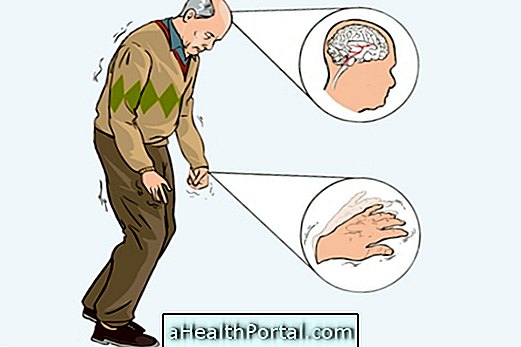During a plane trip, the body may undergo changes that are related to the low air pressure inside the airplane, leading to a decrease in the humidity of the environment and oxygenation of the body.
These factors can cause symptoms such as earache, swelling in the legs, altered taste, dehydration, among others, which can be alleviated by following some tips.
1. The body becomes dehydrated

The air humidity inside the airplane is less than half the ideal value, which causes the skin water to evaporate more easily, thus drying the skin, the mucosa of the mouth, nose and throat and the eyes. In addition, low humidity can still trigger seizures in people with asthma or chronic bronchitis.
Therefore, it is recommended to drink plenty of water during the flight and moisturize the lips and skin as soon as possible.
2. Legs and feet swell

Sitting too long during a flight causes blood to collect in the legs and feet, causing swelling, which may increase the risk of thrombosis.
Thus, it is recommended to stimulate the circulation by moving the feet up and down, walking the plane or even wearing compression stockings before the flight.
3. The body is exposed to radiation

During a flight of about 7 hours, the body is exposed to a dose of cosmic radiation very similar to the radiation of an X-ray. There are already applications that can measure the amount of radiation to which the person is exposed during the flight.
4. The taste is changed

The conditions inside the cabin such as low pressure and dry air cause changes in smell and taste, thus reducing the perception of sweet and savory, which explains the unpleasant taste normally reported in relation to airplane food.
However, to combat the loss of these senses, some airlines already spice up the food, to make meals more palatable.
5. The ear hurts

Ear pain in airplane walking arises due to the change in pressure that occurs when the airplane takes off or lands.
To avoid or reduce ear pain during flight you can chew a chewing gum or some food, use a nasal spray to rebalance the internal pressure or yawn purposefully to move the bones and muscles of the face, favoring pressure regulation . Learn more tips to avoid earache on the plane.
6. The belly swells

During a plane trip, the metabolism slows down because the person sits for a long time, and the change of pressure causes gases that circulate through the body, causing pain and swelling of the belly.
To reduce discomfort, it is best to try to walk the plane and eat lightly during the flight or even have a lighter meal on the eve of the trip. Know which foods cause gas.
7. Oxygen in the blood decreases

When the plane reaches maximum height, it makes the available oxygen in the air smaller, causing the blood to absorb less oxygen, which can cause dizziness, drowsiness and impair mental agility.
In young, healthy people, this decrease is not felt so much because the body compensates for this oxygen reduction by increasing heart rate, breathing, and the amount of inspired air. However, people with heart or lung disease should consult their doctor before taking a plane trip.
8. The risk of disease increases

Because it is a closed, pressurized environment and receiving people from all over the world who are kept in the same place for several hours, there is an increased risk of disease transmission, where the infection occurs on the flight, but the symptoms only appear later .
To prevent contagion, avoid drinking water without sealing and washing your hands frequently during flight and before eating.
Watch the following video and see how to improve comfort during your travels:




















